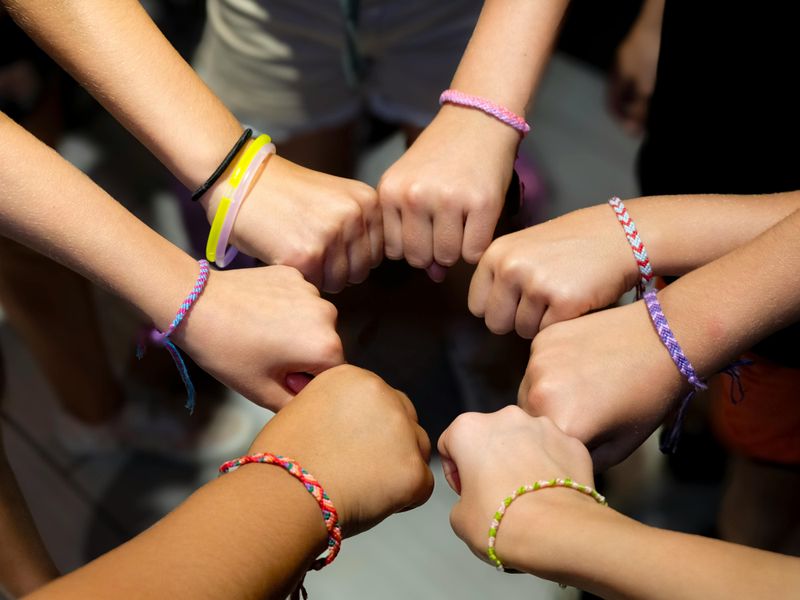15 Tiny Acts of Betrayal From Your Friends That Hurt More Than You’d Expect

Friendship isn’t supposed to be complicated, but sometimes it feels like navigating a minefield. It’s not always the big betrayals that shake the foundation of trust — it’s the small, everyday slights that creep in under the radar. These “micro-betrayals” don’t always blow up a friendship right away, but they leave little cracks that add up over time.
1. Canceling Plans Repeatedly

Few things make you feel less important than being treated like a backup option. When someone constantly cancels at the last minute, it’s not just inconvenient — it feels like they’re telling you your time isn’t valuable.
At first, you might excuse it. Life is busy, things come up, and everyone has to reschedule sometimes. But when it happens again and again, the message is clear: your friendship isn’t a priority.
Even if they don’t mean to hurt you, the pattern leaves you feeling brushed aside. Good friends show up, even when it’s inconvenient. And when they can’t, they make it clear that they still care enough to make it up to you.
2. Telling Your Secrets Casually

There’s nothing worse than hearing your private story repeated by someone who promised to keep it safe. A secret shared in confidence isn’t just information — it’s trust handed over on a silver platter.
When a friend casually drops that secret into conversation, it’s more than gossip. It feels like they’ve decided your vulnerability is less important than their need to connect, entertain, or fill silence.
Sometimes they’ll insist, “I didn’t think it was a big deal,” but that excuse misses the point. The betrayal isn’t about the size of the secret; it’s about breaking the unspoken pact between friends. Once that trust is cracked, it’s hard to see them the same way again.
3. Not Defending You in a Group

Silence speaks volumes when someone is being mocked, criticized, or unfairly targeted. You don’t expect your friends to start a fight on your behalf, but you do hope they’ll have your back.
When they sit quietly, it feels like they’re co-signing the comments. It’s a micro-betrayal that leaves you wondering where their loyalty really lies. Instead of stepping up, they choose the safer route — staying neutral while you take the hit.
Over time, this creates distance. Friendship is about feeling safe and supported, and nothing feels lonelier than realizing the people you trust won’t stand up for you when it matters most.
4. Flaking Without Apology

Everyone has had to cancel a plan, but doing it without even acknowledging the impact is a different story. When a friend ghosts your commitment, it shows they don’t think you deserve an explanation.
Even a simple “Sorry, I can’t make it” softens the blow. Without that, you’re left confused, frustrated, and wondering if you ever mattered in the first place. It’s not just the missed event — it’s the absence of accountability.
An apology costs nothing but signals respect. Without it, the canceled plans pile up into resentment, and suddenly you’re keeping score instead of enjoying each other’s company.
5. Making Jokes at Your Expense

Laughter should feel good — not like a punch in the gut. When a friend makes you the butt of the joke, it might seem harmless to them, but it chips away at your confidence.
The problem isn’t the joke itself; it’s the power dynamic it creates. They get a laugh at your expense, and you’re left smiling through the sting. It’s even worse in group settings, where you feel pressured to laugh along so you don’t seem “too sensitive.”
Over time, those digs add up. You start dreading what they’ll say next, and the friendship stops feeling like a safe space. A real friend knows humor shouldn’t come at your expense.
6. Forgetting Important Dates

A birthday or milestone might not seem like a big deal to some people, but to others, it’s a way of feeling seen and valued. When friends don’t remember, it’s easy to feel invisible.
It’s not about expecting grand gestures or expensive gifts. A quick text, a call, or even a small acknowledgment is enough to show that they care. Forgetting completely, especially when it happens repeatedly, sends the opposite message.
You might tell yourself they’re just bad with dates, but deep down, it feels like they can remember what’s important to them — just not when it comes to you.
7. Being Supportive Only When Convenient

True friendship is tested in moments of inconvenience. If someone only shows up when it’s easy for them, you’re not really getting the full picture of their loyalty.
It’s easy to be supportive when the stakes are low — a quick “Congrats!” on social media, or dropping a heart emoji under a happy update. But when times are tough and you need real help, their silence can be deafening.
That lack of effort can feel like abandonment. It teaches you to lower your expectations and reminds you that some friends love the idea of being supportive more than the actual work of doing it.
8. Copying Without Credit

Imitation may be the sincerest form of flattery, but not when it erases you from the story. When a friend borrows your ideas, your style, or your work without acknowledging you, it crosses a line.
It might be subtle — a phrase you coined showing up in their posts, or a creative idea suddenly being presented as their own. The issue isn’t the copying itself but the lack of recognition.
What stings most is the lack of honesty. A simple, “I loved your idea, I hope you don’t mind me trying it too” changes the tone completely. Without that, it feels like they’re taking from you instead of celebrating you.
9. Downplaying Your Problems

Few things feel worse than opening up to a friend and being told, “It’s not that bad.” Even if their intentions are to comfort, dismissing your feelings does the opposite.
When someone minimizes your struggles, it creates distance instead of closeness. You don’t feel understood — you feel brushed off. It’s a quiet betrayal that makes you hesitate before opening up again.
Good friends don’t need to solve your problems. They just need to validate your experience and let you know it matters. Anything less feels like standing alone in your pain.
10. Showing Up Only in Crisis

There’s something unsettling about friends who disappear when life is good but reappear the moment drama strikes. It creates the sense that they’re only invested when things are messy.
You start to notice the pattern — silence when you’re celebrating, but sudden texts when you’re struggling. While the help during hard times is appreciated, the absence during joy makes their support feel hollow.
A real friend wants to be there for the highs as much as the lows. When someone only engages during your crises, it feels more like feeding on your struggles than nurturing your friendship.
11. Competing Instead of Celebrating

Accomplishments should bring friends closer, not turn into a silent scoreboard. When someone constantly shifts the spotlight back to themselves, it drains the joy out of sharing.
Instead of cheering for you, they downplay your success or quickly pivot to their own. It might not seem like outright sabotage, but it steals the sense of celebration. Over time, you start holding back because you don’t want to deal with the comparison game.
Friendship isn’t a competition. It’s about lifting each other up and knowing there’s room for everyone to win. Anything less starts to feel like envy disguised as companionship.
12. Talking About You, Not To You

Hearing that a friend has been venting about you behind your back stings more than if they’d just told you directly. Gossip leaves you out of the conversation that matters most — the one with them.
When issues aren’t addressed face-to-face, resentment grows in the shadows. You never get the chance to explain, apologize, or even understand what went wrong. Instead, you’re left blindsided by whispers that make you question the entire friendship.
It’s not the act of venting that hurts; it’s the choice to talk to others instead of you. Real trust requires honesty, even when it’s uncomfortable.
13. Making Plans Without You

Nothing makes you feel more excluded than realizing your friends are hanging out — and you weren’t invited. Even if it wasn’t intentional, the sting of being left out is hard to ignore.
It’s not about needing to be included in every single plan. But when it becomes a pattern, you start to feel like an afterthought rather than part of the group. That quiet exclusion can feel like rejection in disguise.
Friendships thrive on inclusion. When friends consistently forget or exclude you, it chips away at the bond until you’re left wondering if you even belong at all.
14. Withholding Praise But Offering Criticism

Feedback is important, but balance matters. When a friend is always quick to point out what you’re doing wrong but never acknowledges what you’re doing right, it creates a toxic dynamic.
Instead of feeling supported, you feel judged. It’s as if they’re keeping a running tally of your mistakes while ignoring your growth and successes. Even when their criticism is meant to help, the lack of encouragement makes it feel harsh and unfair.
Validation is a cornerstone of friendship. Without it, constant critique starts to feel less like honesty and more like a slow erosion of your self-worth.
15. Treating Other Friends Better

It’s hard not to compare when you see the extra effort a friend gives others but never extends to you. Watching them show up for someone else in ways they never do for you can cut deeper than words.
Maybe they plan elaborate surprises, offer endless support, or just seem more excited to spend time with others. The contrast leaves you questioning your value in their life.
It’s not about competition — it’s about consistency. True friendship doesn’t rank people by effort. When you’re constantly left feeling like the lesser priority, it becomes a betrayal that’s hard to ignore.

Comments
Loading…